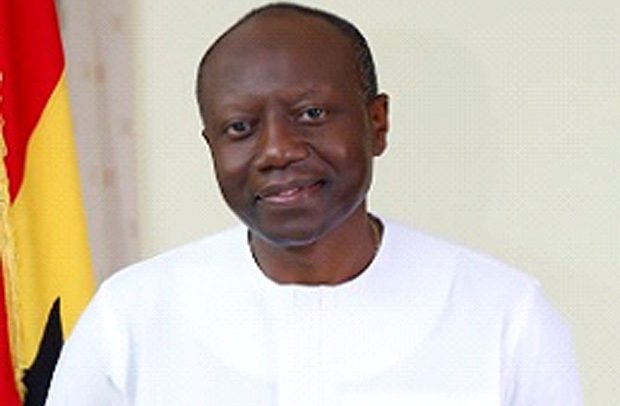Ken Ofori-Atta, Finance Minister
THE CENTRAL Bank has said gaps in the country’s revenue mobilization, coupled with the increasing spate of spending, could pose risks to the country’s macroeconomic stability if not addressed.
The aforementioned concerns have slowed down the pace of fiscal consolidation, the Governor of the Bank of Ghana (BoG), Dr Ernest Addison, stated on Friday at a press conference in Accra, after the 89th Monetary Policy Committee (MPC) meeting.
Deficit
He disclosed, “Provisional data for the first five months of 2019 showed an overall budget deficit (on cash basis) of 3.0% of GDP against the target of 2.4% of GDP. This excludes some legacy energy-related payments of about 0.7% of GDP. The higher-than- projected fiscal deficit outturn was primarily driven by lower-than-expected revenues outturn against increased pace of spending.
“The revenue shortfalls were mainly from international trade taxes. Over the review period, total revenue and grants amounted to GH¢18.5 billion compared to a programmed target of GH¢21.5 billion, indicating an annual growth of 7.6%. Total expenditures, however, reached GH¢28.6 billion, marginally below the target of GH¢29.7 billion, representing 25.2% annual growth.”
Corrective measures
Dr Addison said, “The MPC expected that some corrective measures will be announced in the mid-year budget review. This should help address the financing gap challenges as well as manage the risks from the large unbudgeted energy sector related payments that could adversely impact foreign exchange reserves and undermine the macro stability gains made so far.”
Price stability
However, he said while such risks remained, the BoG’s core mandate of price stability appeared to be on track.
Inflation
“Inflation has remained within the target band in the last 15 months,” he said, adding that the MPC’s assessment showed that the pass-through from exchange rate depreciation was waning, while the underlying inflationary pressures, as well as inflation expectations, were well-anchored.
Policy rate
He said the MPC decided to maintain the policy rate at 16%.
Growth
Noting also that economic activity remained strong and broad-based, he said, “Although there are some downside risks to growth, mainly from subdued business sentiments and increase in utility tariffs, growth is expected to remain robust in the second half of the year. The medium-term outlook for the real sector is positive based on improving consumer sentiments and continued recovery in private sector credit growth.”
Continuing, the BoG Governor said the strong external payments position witnessed in the last 24 months continued in the first half of the year.
“Both the trade and the current account recorded surpluses. These, together with improvements in the capital and financial account, translated into a slight build-up in reserves in the first half of the year, supporting the local currency market, as the cedi remained relatively stable in the second quarter.”
BY Samuel Boadi


